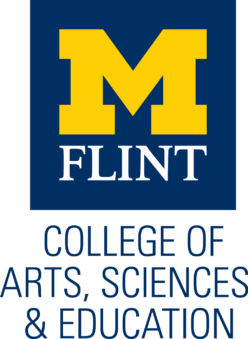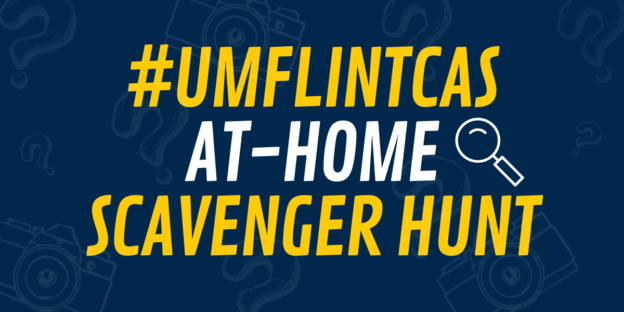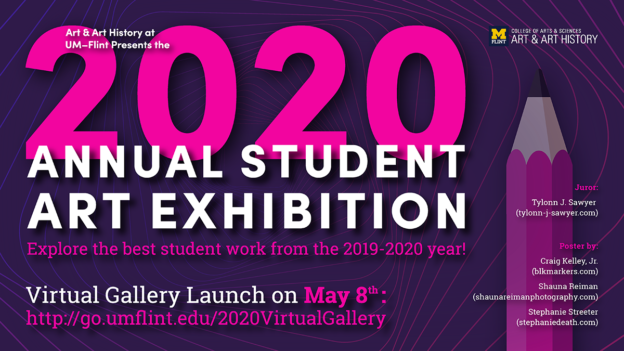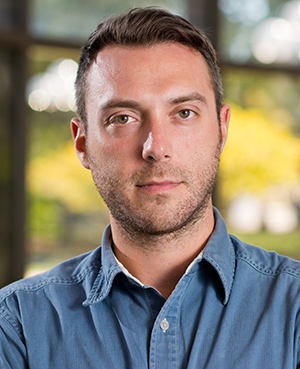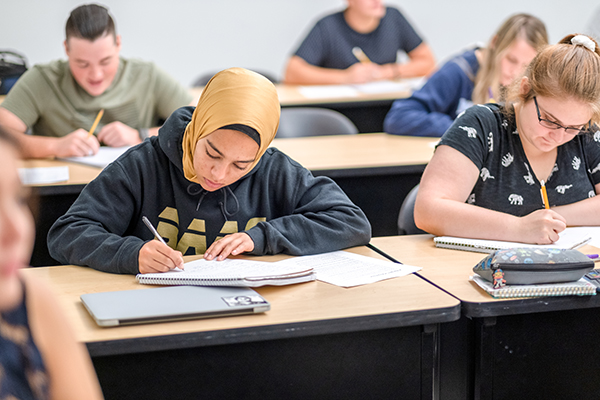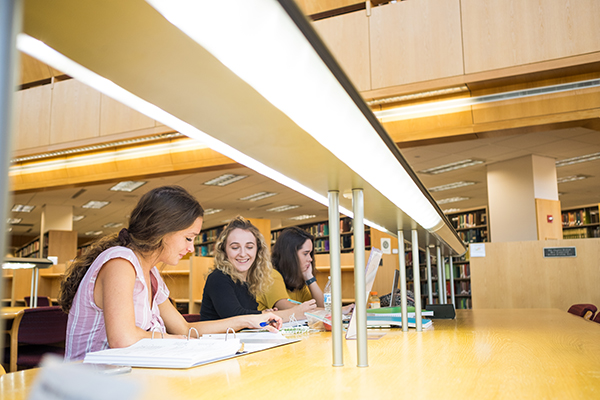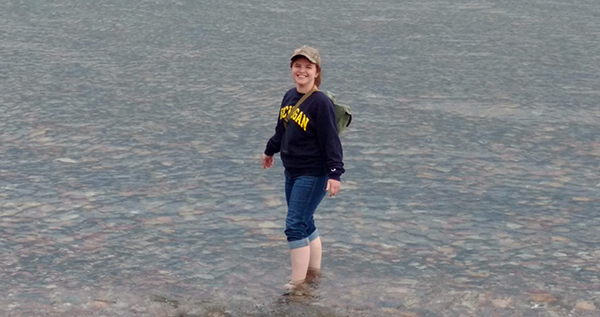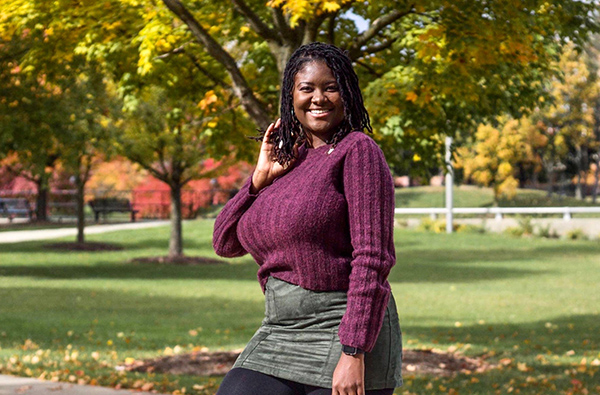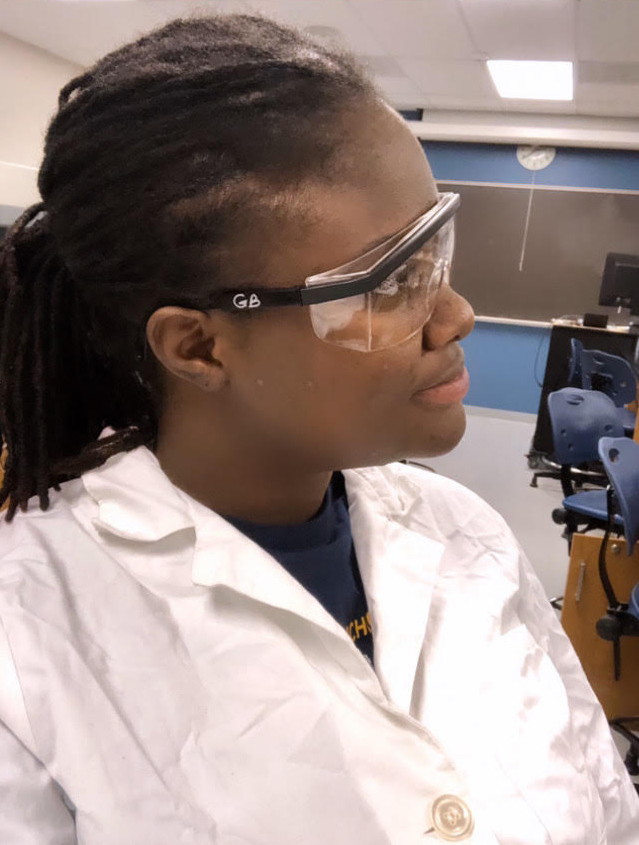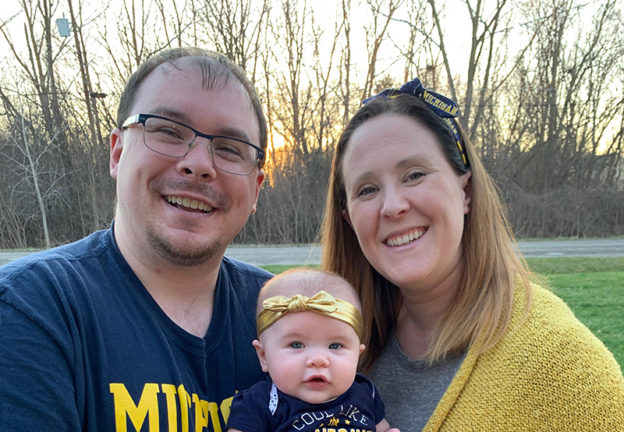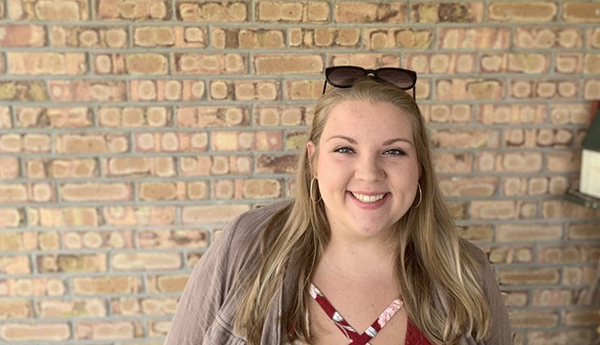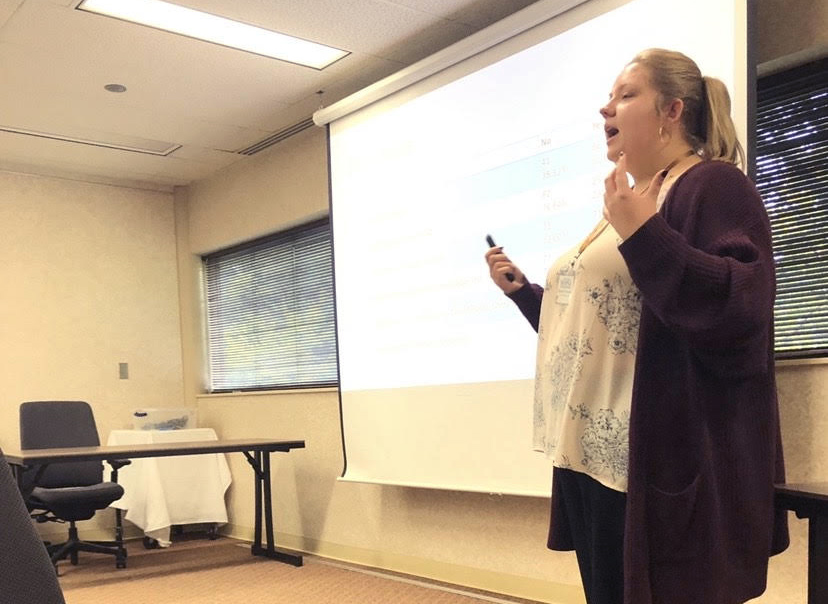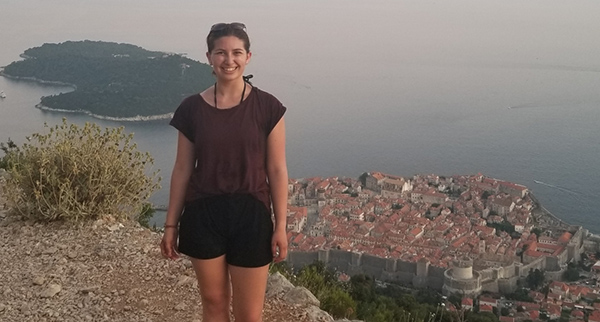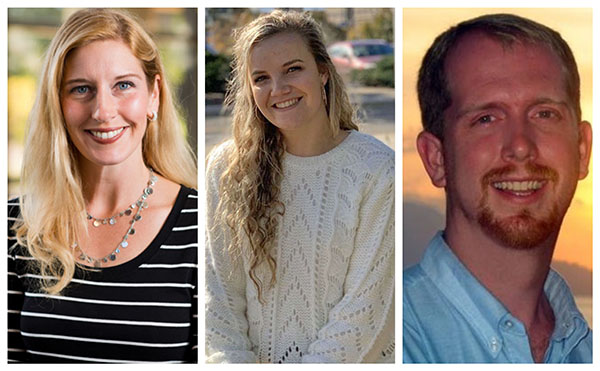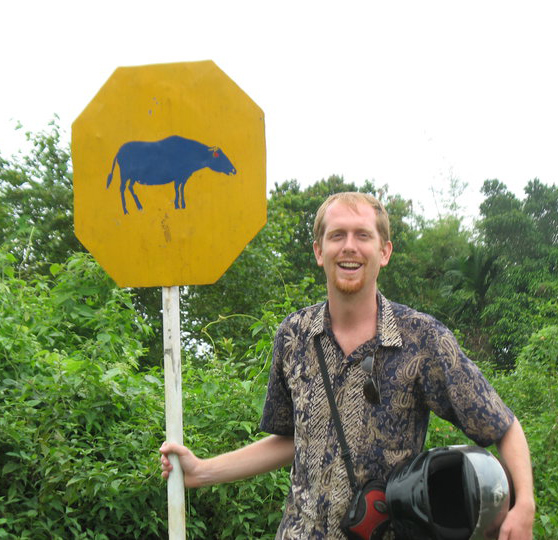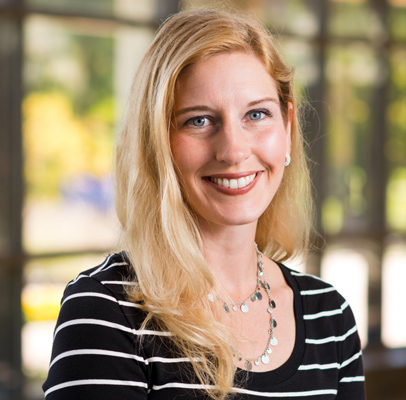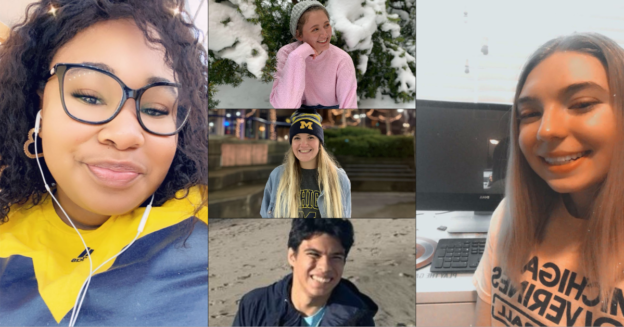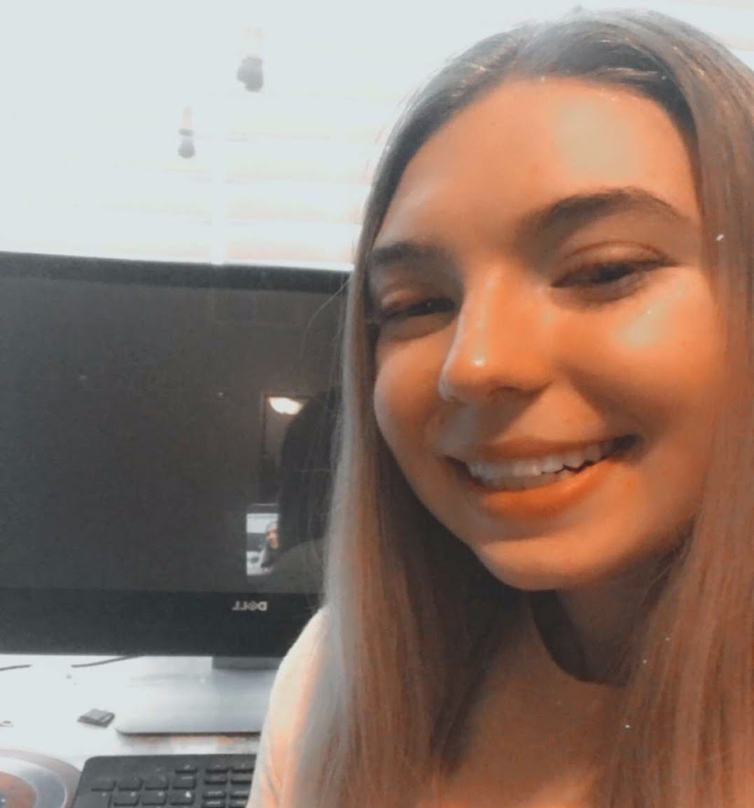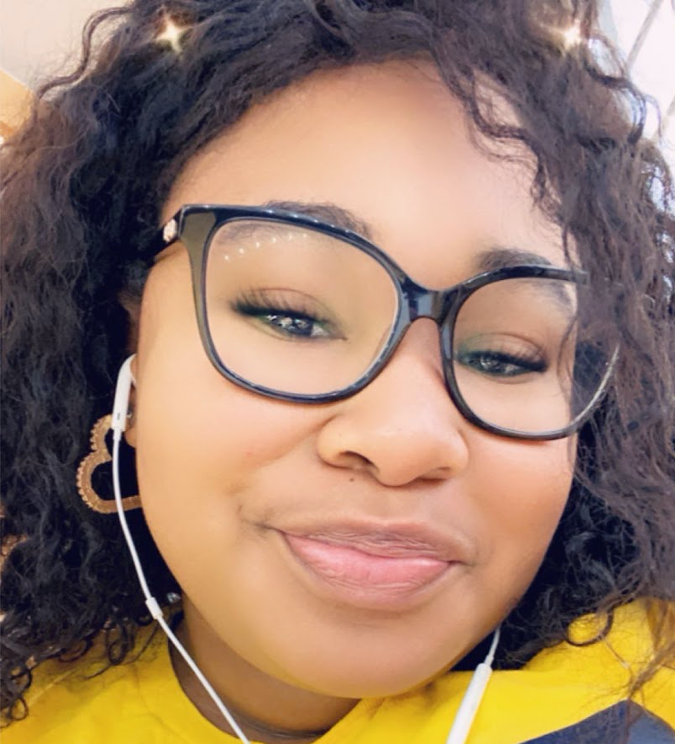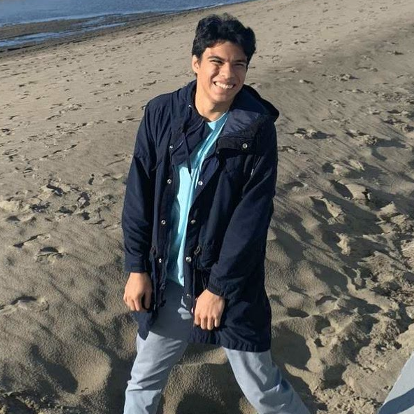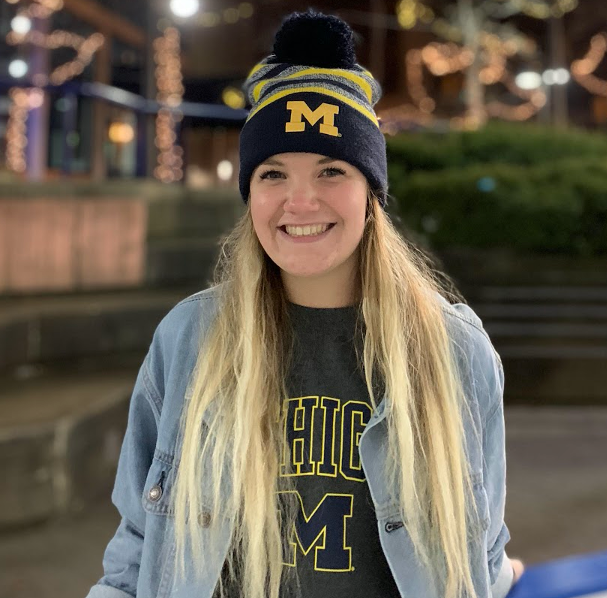April Bartle talked with two of her instructors about completing the Winter 2020 semester in an online format.
Everyone at UM-Flint has experienced a lot of changes over the past month. That includes my instructors, who have worked hard to help us continue learning despite us being away from campus. I recently had some (virtual) conversations with two of those instructors to see what the experience has been like for them.
Intro to Cultural Anthropology: Dr. Daniel Birchok
My Intro to Cultural Anthropology course was very discussion-based. A typical class session consisted of a short lecture, and then a lot of open dialogue to dive deeper into the topics. I really appreciated how we could offer our own interpretations of the material or ask questions to better understand a concept.
Dr. Daniel Birchok’s teaching style is very expressive—he walks across the room and tries to engage with every student. “I really like to read the room. I like to see, ‘Oh, they look confused here or this person asked this question, so I should talk about that,’” Dr. Birchok explained to me.
He shared how it has been a challenge to transfer that energy to online instruction. Live sessions would have been best to accommodate his teaching style, but he wanted to make sure learning could still be accessible in all of our difficult schedules right now.
“I felt like it wasn’t really fair to expect students to just continue on as if nothing had happened and to show up at a certain time for every class. I decided that I’m going to pre-record everything possible and then open up the window for discussion and ask students to attend those as they can.”
Fun fact: Dr. Birchok conducts much of his research in Indonesia and has led several trips there for students!
Intro to Public Speaking: Kimberly Laux
If you can’t tell already, I’m a bit of a talker, so I was super excited for my Intro to Public Speaking class this semester. So far in this class, we had given ceremonial speeches, written our own speeches, and even narrated children’s books. You can imagine how the class dynamic changed when our class transitioned online.
Before the switch, we recorded practice speeches using a program called Kaltura to prepare us for the actual presentation. Our remaining speeches are now recorded and turned in online to a discussion forum where our classmates can view and provide feedback.
One of our final projects was scheduled to be a group presentation. My instructor, Kimberly Laux, felt like it was best to be flexible and change that to an individual assignment.
“I didn’t know how many students would have access to collaborative technology – I didn’t even know how long we would be teaching online at that point,” Kimberly says. “I didn’t think it would be fair to expect you to not only complete your work as individuals, but then also figure out how to make it work amongst each other.”
Fun fact: In addition to being an instructor, Kimberly is also the academic advisor for all Communication Studies students, including me!
While this unexpected change to online courses hasn’t been easy, I’ve appreciated how my professors have continued to expect great things from us while making learning accessible in this unpredictable time.
April Bartle is a sophomore Communications Studies major in the College of Arts & Sciences at UM-Flint.
